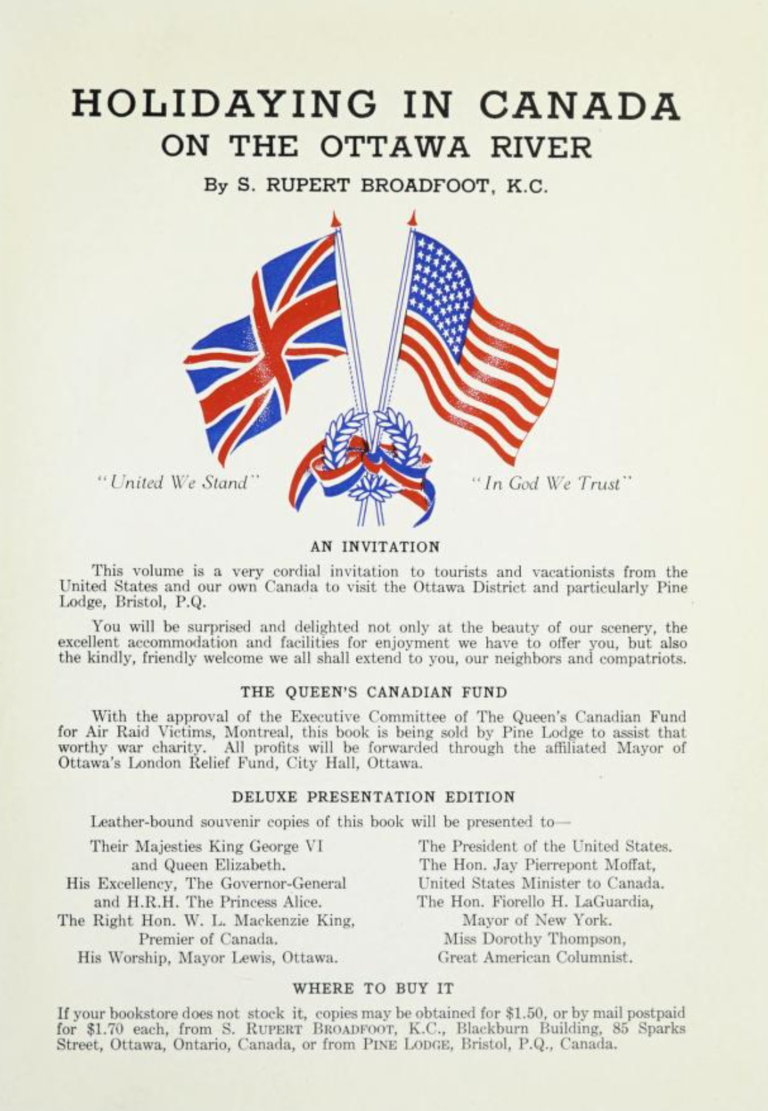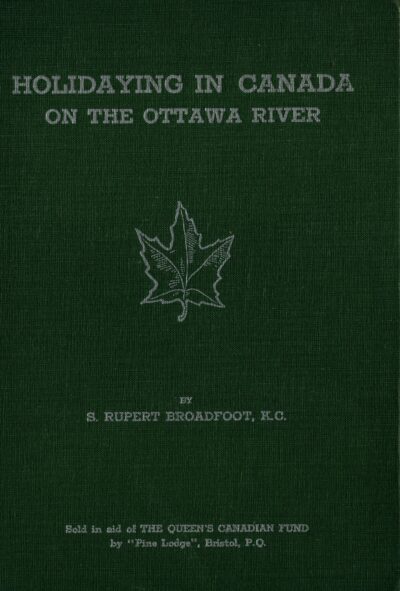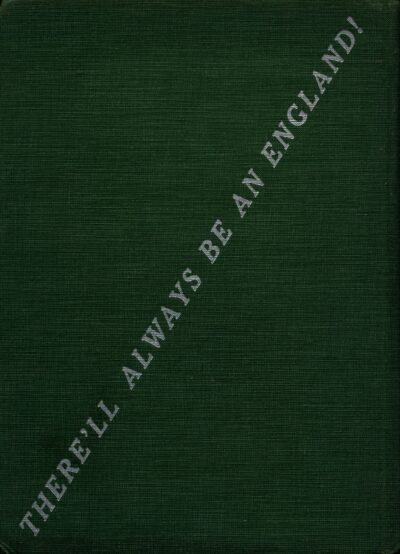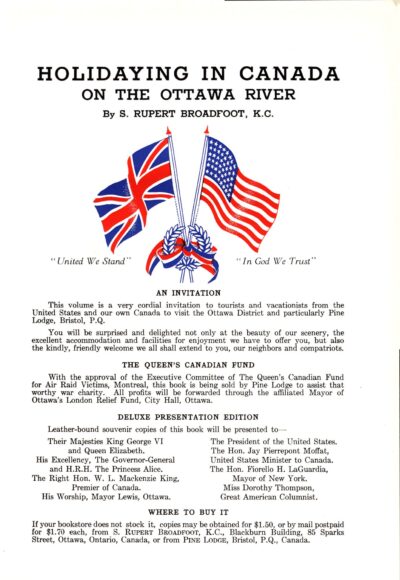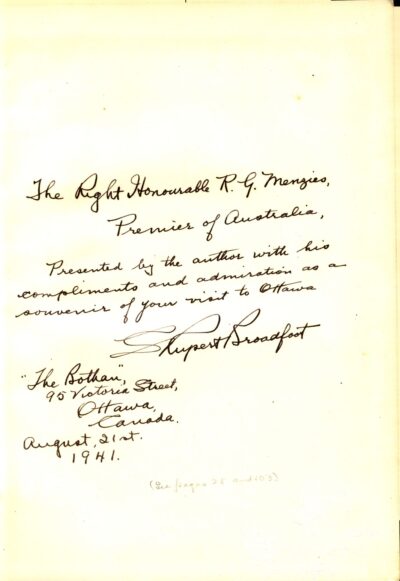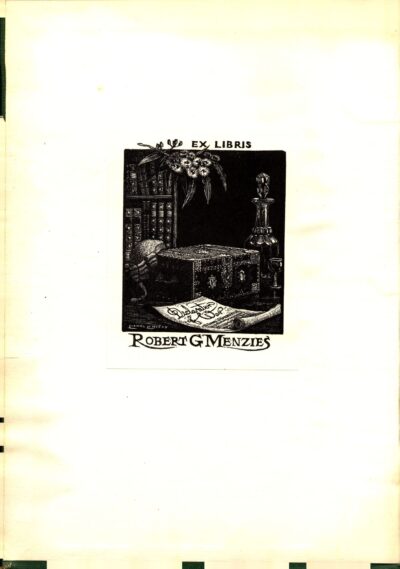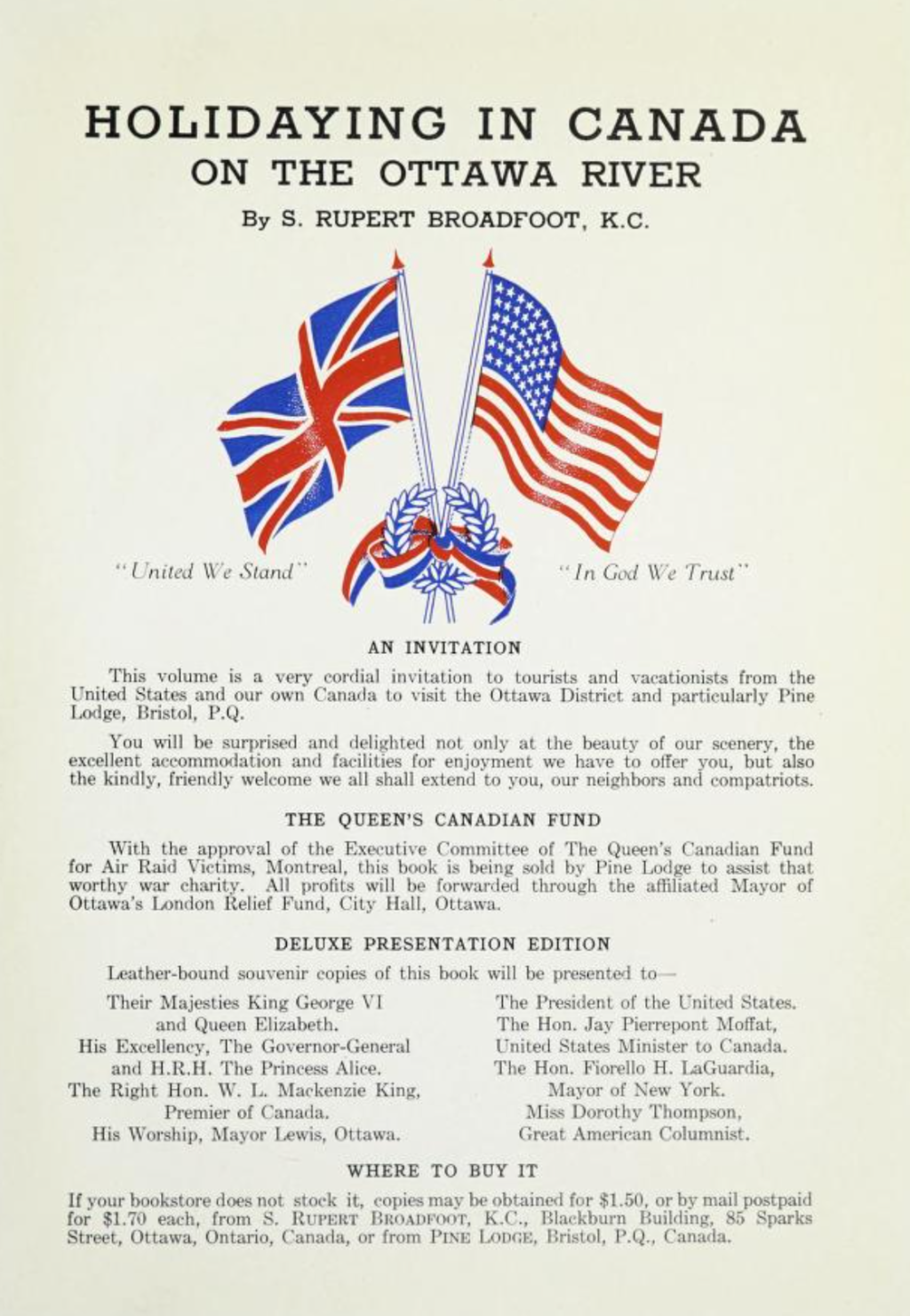S. Rupert Broadfoot, Holidaying in Canada on the Ottawa River (1941)
Holidaying in Canada on the Ottawa River is an odd book written at a dark time in world history.
Published in 1941 at a time when the British Commonwealth stood virtually alone against Nazi Germany and the United States remained officially neutral (despite directing considerable aid to Britain via Lend-Lease), the book seeks to simultaneously attract American tourists to visit Canada, garner their sympathy for the Allied war effort, and raise money for the Queen’s Canadian Fund for Air Raid Victims (which was to receive all proceeds from the book’s sales and direct them towards those affected by the Blitz). It does so through an eclectic collection of photographs, reminiscences, a history of Ottawa and its surroundings, holiday poems, and wartime speeches; an utter mish mash which sees an account of the British Monarch’s recent tour of North America sit side by side with a printing of Abraham Lincoln’s Gettysburg Address.
Amongst its numerous incongruent entries is a brief account of a speech Menzies delivered in Ottawa just a couple of months before the book’s publication:
‘“Everyone in the British Empire knows we are at war, but we have not yet all realized that we are in the deadliest and most dangerous war in our history,” declared Prime Minister Robert Menzies of Australia to the Canadian Club of Ottawa today. “We shall win,” he added. Mr. Menzies declared that he distrusted two classes of people — the defeatists and the idle optimists. Both did immeasurable harm and the war would not be won by either. Referring to the actual struggle Mr. Menzies said that while the Empire had experienced some grave moments and some inspired moments during the war its greatest triumph of all had been in “extricating ourselves from utter defeat.”’
Menzies visited Canada on the way back from a trip to Britain in which he had spent considerable time lobbying Winston Churchill to ensure that sufficient Allied resources were dedicated to the Asia-Pacific to deter Japanese aggression. At the time Australia like Canada felt eerily distant from the war in which thousands of its soldiers were fighting (though perhaps not so distant as to surreally advertise itself as a tourist destination). Menzies knew that this was ominously likely to change, but he had had a difficult time convincing certain sections of the Australian public to take the threat seriously (particularly when it came to preventing destructive strikes which impeded defensive preparations).
During the trip, Menzies was the personal guest of long-serving Canadian Prime Minister Mackenzie King, who invited him to speak to the Canadian Parliament and spend some important time liaising with the Canadian Cabinet’s War Committee. The trip was a tremendous success, raising Allied moral and a sense of Commonwealth unity, with King recording in his diary that:
‘Menzies took the city more or less by storm. He is a fine looking fellow, splendid presence, great vigour, and has a wonderful gift for speaking. He has endless confidence in himself, and does not mind putting himself very much in the limelight…Reveals his Scotch Presbyterian origin in his thoughts and views generally. Has many of the qualities of a great leader, but, I feel, while his sympathies are broad, he nevertheless is thinking pretty much of Menzies most of the time, and likes very much the environments of high society, palaces, etc, which will cost him’.
Inscribed by the author ‘with his compliments and admiration as a souvenir of your visit to Ottawa’, the book is an artefact not just of Menzies’s wartime trip, but of Canada and Australia’s contrasting war experiences.
You might also like...
Sign up to our newsletter
Sign up for our monthly newsletter to hear the latest news and receive information about upcoming events.

